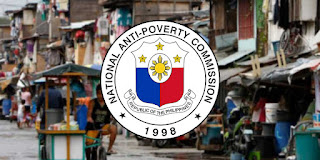NAPC: Building a High-trust Society based on ‘Malasakit’
“Malasakit” or care for Filipinos was at the heart of the 2017-2022 Philippine Development Plan (PDP) for inclusive growth and a globally-competitive knowledge economy. It means having people-centered, technology-enabled, and responsive governance, coupled with swift, fair and humane administration of justice. With this in mind, the National Anti-Poverty Commission (NAPC) has worked relentlessly since 2016 under the past Administration to build a high-trust society based on “malasakit.”
“We want to help regain the people’s trust in public institutions and cultivate trust among Filipinos. To do this, we have implemented a multi-dimensional approach aimed at uplifting the lives of our kababayans, especially the marginalized and vulnerable sectors,” said NAPC Secretary Noel Felongco. One of the NAPC strategies is governance. It pushed for reforms that enabled the basic sectors to effectively participate in decision-making and management processes that affect their rights, interests, and welfare.
Wage-earners were taken care of by pushing for their rights to organization and collective bargaining and incorporating trade union representation in labor inspection.
Cooperatives became part of the government decision-making process to contribute to livelihood development at the local level. The youth were given a chance to participate in local governance.
The NAPC also saw to it that children, persons with disabilities, and senior citizens were not left behind. It supported the implementation of policies on child labor and social protection programs and projects to prevent any form of abuse.
The agency established the Persons with Disability Affairs Office (PDAO), pushed for the creation of the Special Committee on Persons with Disabilities in the House of Representatives, and ensured that the right to suffrage of vulnerable sectors was recognized.
At the same time, it issued guidelines on planning and implementing gender-responsive policies and programs for compliance by National Government Agencies (NGAs) and LGUs.
NAPC exercises oversight functions in incorporating anti-poverty strategies and programs in national, regional, sub-regional, and local development plans. It is mandated to institutionalize basic sector participation in formulating, planning, implementing, and monitoring anti-poverty policies, strategies, and programs.
—
If you like this post, please do share it on social media like Facebook, Twitter or any other site that you like (of course with a credit link back to this blog post).
Also, don’t forget to follow me on Facebook, Spotify or Anchor.fm (for the Podcast), and Instagram for more updates and random stuff about me and this blog.
 Reviewed by Vernon Joseph Go
on
Monday, June 06, 2022
Rating:
Reviewed by Vernon Joseph Go
on
Monday, June 06, 2022
Rating:




Post a Comment